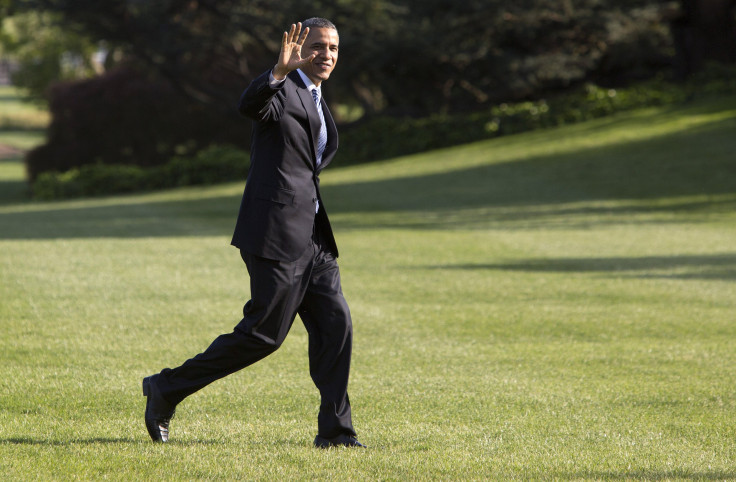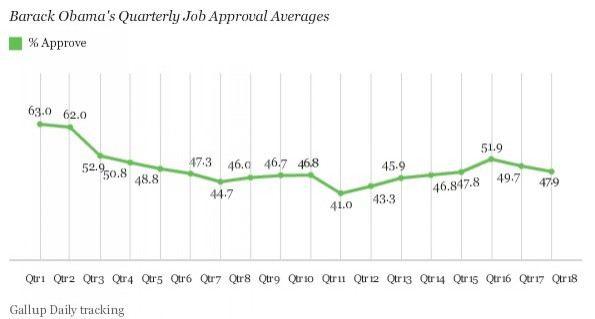Obama’s Job Approval Hits A New Low Ahead Of Economy Speech: Gallup Poll

U.S. President Barack Obama’s approval rating has dropped to 47.9 percent, falling for the second consecutive quarter, according to a Gallup poll.
The survey of the president’s 18th quarter was conducted among 45,000 American adults between April 20 and July 19.
Obama saw his best quarterly approval average of 63 percent when he was first elected to the White House. It has since been steadily declining to a low 41 percent in his 11th quarter in office. This was when Obama was butting heads with Congress over the debt limit. Modest improvements followed, leading to a high of 51.9 percent in the 16th quarter after his re-election, Gallup data shows. See Gallup's rating chart below:

The release of these numbers comes as the president is set to deliver a series of economic speeches beginning Wednesday at Knox College in Illinois. Obama also is expected to push lawmakers further on immigration reform. The Democratic-led Senate has already passed a comprehensive immigration reform bill, but the GOP-led House of Representatives is stalling on the issue. Overhauling the immigration reform system is one of Obama’s top second-term priorities. He would need to get something out of Congress by the end of 2013 or next year before he becomes a lame-duck president.
Still, this poor showing in approval ratings isn't unique to Obama. Several other second-term presidents have gone down this road before -- some with much worse numbers. According to Gallup data, George W. Bush’s 18th quarter approval was 47.3 percent and Richard Nixon’s was 44 percent. The picture was far more favorable for presidents Ronald Reagan with 58.7 percent, Bill Clinton with 56.3 percent and Dwight Eisenhower with 63.6 percent.
“Historically, the trend has been for presidents’ approval ratings to decline in their 19th quarters in office,” Gallup said, adding that Nixon saw a steep decline because of the Watergate scandal while Reagan and Clinton received high numbers because they “presided over robust economies at that point in their presidencies.”
© Copyright IBTimes 2024. All rights reserved.






















